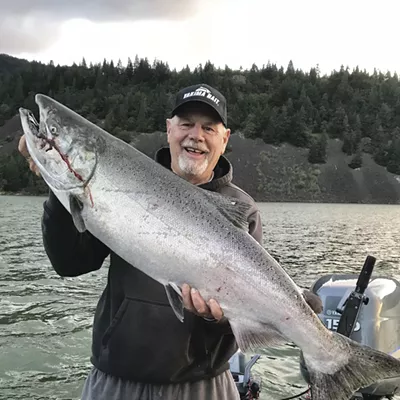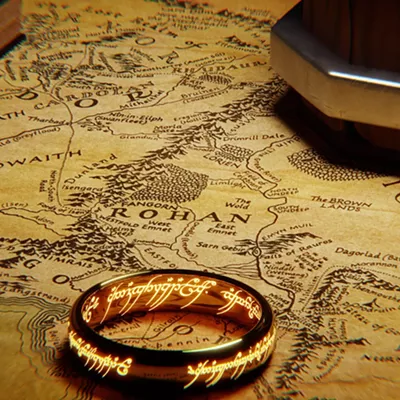Call me Ishmael.
The first line in Herman Melville's Moby Dick has become distinctly and instantly recognizable since its publication in 1851.
It's a line composed of only three words, yet those three words have had an immense impact on the literary world and what comes in the novel's 700 remaining pages.
In Chapter 15 of Melville's magnum opus, readers meet an innkeeper on Nantucket named Mrs. Hussey who makes delicious chowder. She sticks around for a few chapters, causing a bit of commotion and acts as comedic relief until Ishmael and his friend Queequeg depart to continue on their voyage.
But what happened to Mrs. Hussey? Was she left to live a life dedicated to making chowder on Nantucket? Or did something greater await her and the women who came after her?
Moscow-based writer Tara Karr Roberts' debut novel Wild and Distant Seas seeks to give Mrs. Hussey more than just a few chapters worth of character-building with a magical twist that spans generations and continents while also exploring the power of a name.
The idea for Wild and Distant Seas came to Roberts (who's also a regular columnist for the Inlander) while taking a class on 19th-century novels at the University of Idaho for her master's degree in English.
"We were assigned Moby Dick, and I had never read it before," Roberts says. "I was so pleasantly surprised by it though. I got very attached to this innkeeper and convinced my professor to let me write a short story instead of an essay for this one particular assignment."
That short story eventually became part one of Wild and Distant Seas, in which Roberts gives Mrs. Hussey the first name Evangeline and therefore an identity all her own.
"She is the only female character in Moby Dick with any kind of extensive speaking part," Roberts says. "Even her husband, Hosea Hussey, gets a first name despite not being in the book at all."
It's in the very first chapter of her book that Roberts gives the innkeeper her name.
After asking Ishmael and Queequeg whether they want clam or cod chowder and receiving no reply, Ishmael says: "I confess I'd missed your meaning at first, Mrs. Hussey. Clam or cod chowder, of course! The mystery is solved."
The widowed innkeeper replies with nothing but three words: "Call me Evangeline," mimicking Melville's iconic opener.
"I chose that name right away," Roberts says. "Its Greek translation means 'good news.' From the very beginning, it was so important for me to tell the story of the voice that is missing in Moby Dick. She doesn't even get a name. She gets to do silly things and yell about chowder, but she doesn't get to have a story. Now she does."
As the story progresses, the choices Evangeline makes and the things she tries to do to protect herself end up having decades of consequences for her family.
Each of the four female protagonists in Wild and Distant Seas has a magical quirk about them. Evangeline and her daughter Rachel can mold the memories of people around them with a simple phrase. Rachel's daughter Mara can remember every moment of her life and see the lives of others, and Mara's daughter Antonia can see the paths that people have taken throughout their lives.
These gifts aid in a multigenerational search for the elusive Ishmael that all of the women embark on and carry out through their lifetimes. Roberts' writing is lush and heartfelt, with love and care dripping from each line. The book's characters are complex and stubborn, but each daughter has love instilled in her heart by her mother before her.
"Writing about generations of women is something that I'm very interested in," Roberts says. "I come from a very matrilineal family. I grew up knowing my great-great-grandmother and my great-grandmother and living near them. So, the idea of ties among women is really important to me as well as the way families tell stories and how they change over time."
The last woman in the familial line, Antonia, finds herself in Moscow, Idaho, but yearns to leave the small town and continue the quest for Ishmael.
"It's a really important place to me," Roberts says. "It's a complicated place, but I identify so strongly with being an Idahoan that I couldn't imagine writing a novel that wasn't tied here in some way."
In 2020, Roberts received a grant from the Idaho Commission on the Arts to go to Massachusetts for research. After the original trip was delayed due to the COVID-19 pandemic, Roberts finally set out for Boston and Nantucket in 2021.
Along with the trip to Massachusetts, long nights of online research, poring through library archives and watching plenty of whale videos on YouTube, Roberts says she couldn't have written Wild and Distant Seas without her own life experience of raising two children.
"I started writing this when my kids were in kindergarten and third grade," she says. "Now they're in sixth and ninth grade. For me, having that experience of raising children — in all of its complexity — was absolutely necessary to writing this novel. I don't think it's necessary for every writer, but for me it was really essential, and I'm really proud of having explored that complexity of being a parent because it's wonderful and it's awful and everything in between." ♦
Tara Karr Roberts: Wild and Distant Seas • Wed, Jan. 17 at 7 pm • Free • All ages • 1912 Center • 412 E. Third St., Moscow • bookpeopleofmoscow.com
























